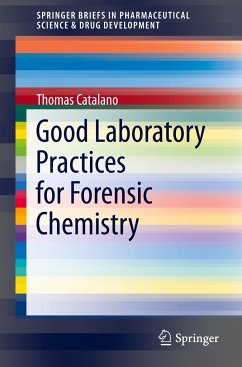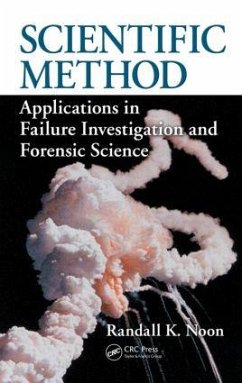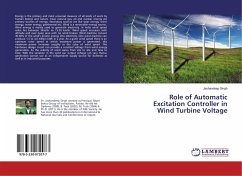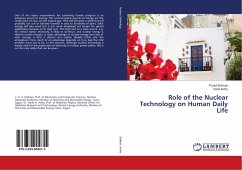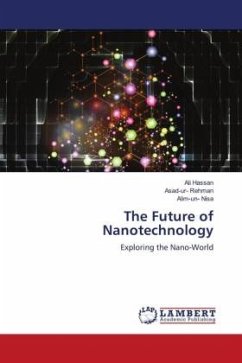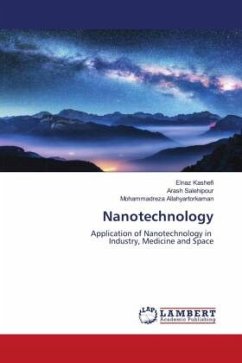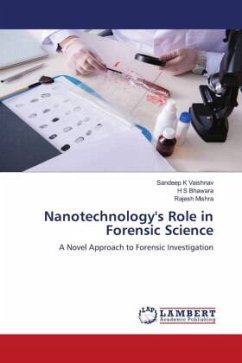
Nanotechnology's Role in Forensic Science
A Novel Approach to Forensic Investigation
Versandkostenfrei!
Versandfertig in 6-10 Tagen
19,99 €
inkl. MwSt.

PAYBACK Punkte
10 °P sammeln!
Nanotechnology is the manipulation of material at the molecular level to make innovative materials with exceptionally diverse and exceptional properties. Nanotechnology is primarily employed in forensic science to improve and develop reactive ('smart') materials, microchip technology, nanoimaging tools for visualisation and nanomanipulators i. e. microfluidic systems for post-polymerase chain reaction (PCR) quantification, DNA extraction media, and latent fingerprint visualization using nanopowder. Nanotechnology could be effective in addressing current forensic investigation issues such as ev...
Nanotechnology is the manipulation of material at the molecular level to make innovative materials with exceptionally diverse and exceptional properties. Nanotechnology is primarily employed in forensic science to improve and develop reactive ('smart') materials, microchip technology, nanoimaging tools for visualisation and nanomanipulators i. e. microfluidic systems for post-polymerase chain reaction (PCR) quantification, DNA extraction media, and latent fingerprint visualization using nanopowder. Nanotechnology could be effective in addressing current forensic investigation issues such as evidence collecting and analysis from crime scenes. Advances in nanotechnology will reduce the size of bulky devices and shorten analysis techniques. This could lead to better scientific evidence analysis adequate for legal procedures.



